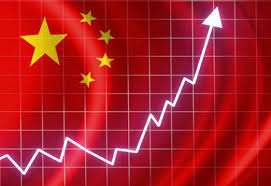The Chinese biotechnology industry continues to offer huge potential for global companies because of its tremendous market size, professionals with relatively cheap compensation packages, and a broad innovative foundation, among others.
In 2003, the biotechnology industry in China was valued at only $3 billion and anticipated to achieve a market size of $9 billion by 2010, representing a compound annual growth rate (CAGR) of around 17%. Biotechnology is among the key areas for China to enhance its strength in cutting-edge technologies, and it is relied upon to account for around 7%-8% of the country’s gross domestic product (GDP) by 2020. As indicated by the Chinese Academy of Sciences (CAS), China is probably going to end up as one of the best five nations on the planet in terms of the size of its biotechnology industry by 2020. The biotechnology industry in China is comprised of horticultural biotechnology, biopharmaceutical, mechanical biotechnology, natural assets innovation, and natural biotechnology — with horticultural and biopharmaceutical segments being the prime engines of development.
China has been allocating more financial resources into biotechnology. From 2001 to 2005, the yearly government ventures expanded from $100 million in 2001 to $1.2 billion by 2005. This figure was expected to have soared to $8.8 billion in 2010, as the Chinese government aimed to transform China into one of the major biotechnology players in the world. As indicated by the “2006-2020 National Medium- and Long-Term Science and Technology Development Plan,” the government is anticipated to contribute $111.8 billion or 2.5% of its forecast gross domestic product into, generally speaking, innovative work for all industries by 2020, with the advancement of biotechnology being considered the top priority. China at present has around 2,500 biotechnology companies, in excess of 20 biotechnology parks situated in Beijing, Shanghai and Guangzhou, and significant innovative work is being carried out in Beijing, Shanghai, Xi’an, Tianjin and Nanjing. In addition, great policies related to taxation, finance, and human resources have likewise made China an ideal destination for business stakeholders and potential investors pertaining to the biotechnology industry.
China is a highly attractive market for international biotechnology companies because of the ease in setting up assembling and Research and development units, its substantial pool of relatively inexpensive professionals, and a less stringent regulatory environment. Global companies such as DuPont, Invitrogen (under Thermo Fisher Scientific Corporation), and GeneMedix plc, enter the Chinese market through joint ventures with local firms, setting up manufacturing bases, or outsourcing research and development activities to Chinese firms. Till year-end 2005, China had around 750 Research and development entities supported by foreign capital in the form of joint ventures. In any case, the degree for outsourcing to China by the global biotechnology industry is far from saturating, with global firms outsourcing less than 5% of their total businesses to China.





China Aims High and Dreams Big in Nanotechnology